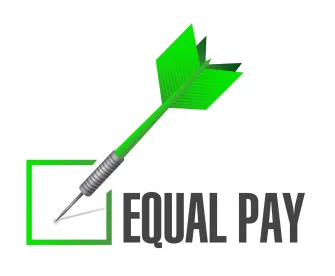Illinois employers with more than 100 employees in the state (“covered employers”) which file an EEO-1 with the federal government on an annual basis soon will be required to apply for an equal pay registration certificate (“EPRC”) with the Illinois Department of Labor (“IDOL”). Given the breadth of the applicable EPRC application requirements, Illinois employers are advised to take action now.
Timeline for Compliance
As noted in a prior Vedder alert, on March 23, 2021, Governor J.B. Pritzker signed into law amendments to the Illinois Equal Pay Act (the “Act”) and other laws. Those amendments required covered employers to (i) obtain an EPRC every two years and (ii) include EEO-1-type diversity data in an annual report to the Illinois Secretary of State.
The Act was further amended on June 25, 2021. Per the second set of amendments, covered employers that were authorized to transact business in Illinois as of March 23, 2021 must submit an EPRC application to the IDOL between March 24, 2022 and March 23, 2024. Those employers so authorized only after March 23, 2021 must submit an EPRC application within three (3) years of commencing business operations (but not before January 1, 2024). Of note, the amendments direct the IDOL to assign employers a deadline by which to submit their application, meaning that a covered employer may be required to submit on the earliest date provided above for its business, depending on when it was first authorized to transact business in Illinois.
Updated Requirements for Equal Pay Registration Certificates
The most recent amendments further expand on the information employers must submit with their EPRC applications. At the outset, employers must submit (i) a copy of their most recently filed EEO-1 report and (ii) a list of all employees employed during the past calendar year (separated by gender, race and ethnicity), each employee’s start date, the total wages paid to each employee during the past calendar year and any additional information deemed necessary by the IDOL to determine if pay equity exists. Notably, “wages” include any pay owed to an employee pursuant to an employment contract or agreement and can include salaries, bonuses and commissions.
Covered employers must also submit a signed statement certifying that the employer is in compliance with the Act and other relevant anti-discrimination laws and that
-
the average compensation for female and minority employees is not consistently below the average compensation for male and non-minority employees within each of the major EEO-1 job categories for which the employee is expected to perform work;
-
employees of one sex are not restricted to certain job classifications;
-
retention and promotion decisions are made absent consideration of sex;
-
the employer corrects wage and benefit disparities when identified;
-
the frequency of which wages and benefits are evaluated; and
-
the approach the employer takes when evaluating the wages and benefits that will be paid.
Penalties for Non-Compliance
Failure to obtain an EPRC as required may result in a penalty of up to $10,000, although employers have up to thirty (30) days to submit a revised EPRC application if their application is found to be deficient and may appeal the IDOL’s deficiency findings.
What Steps Should Employers Take Now?
Employers should act promptly to evaluate their pay practices and to remedy any pay inequities before their EPRC applications are due.




 />i
/>i

